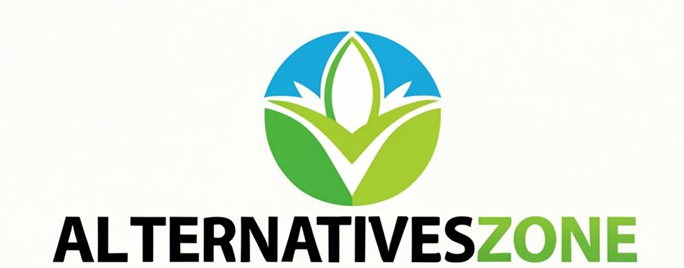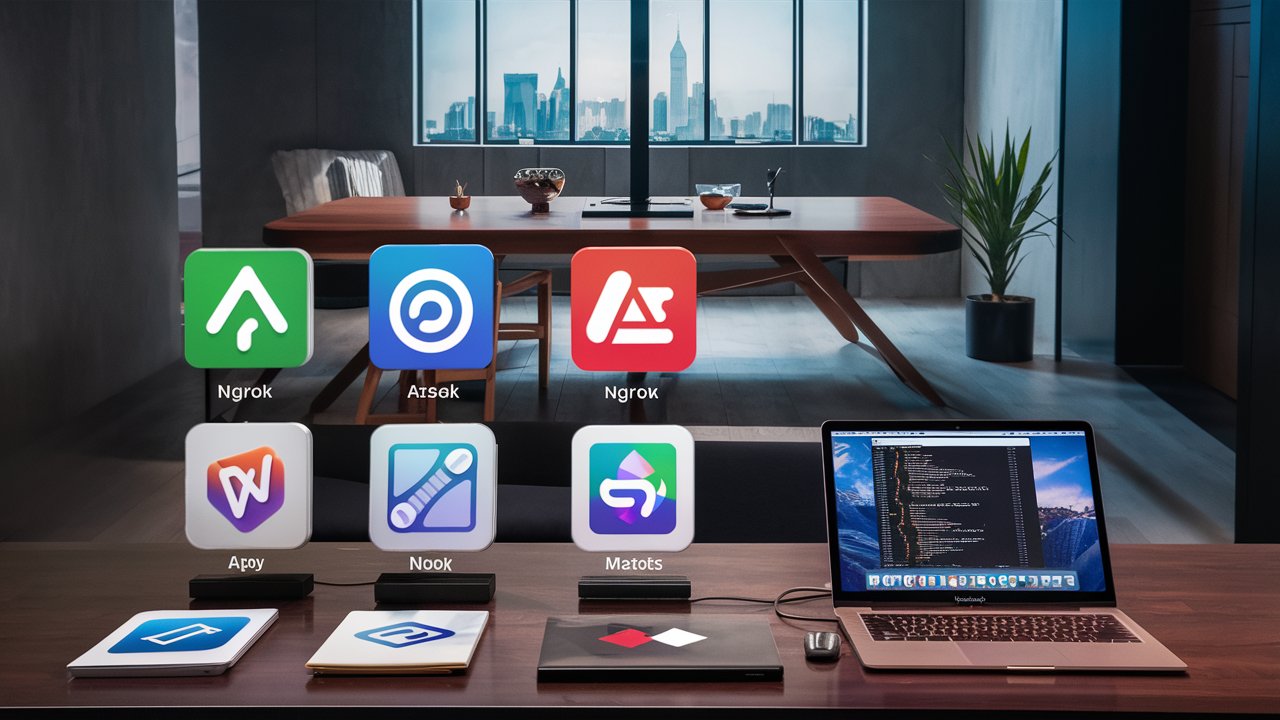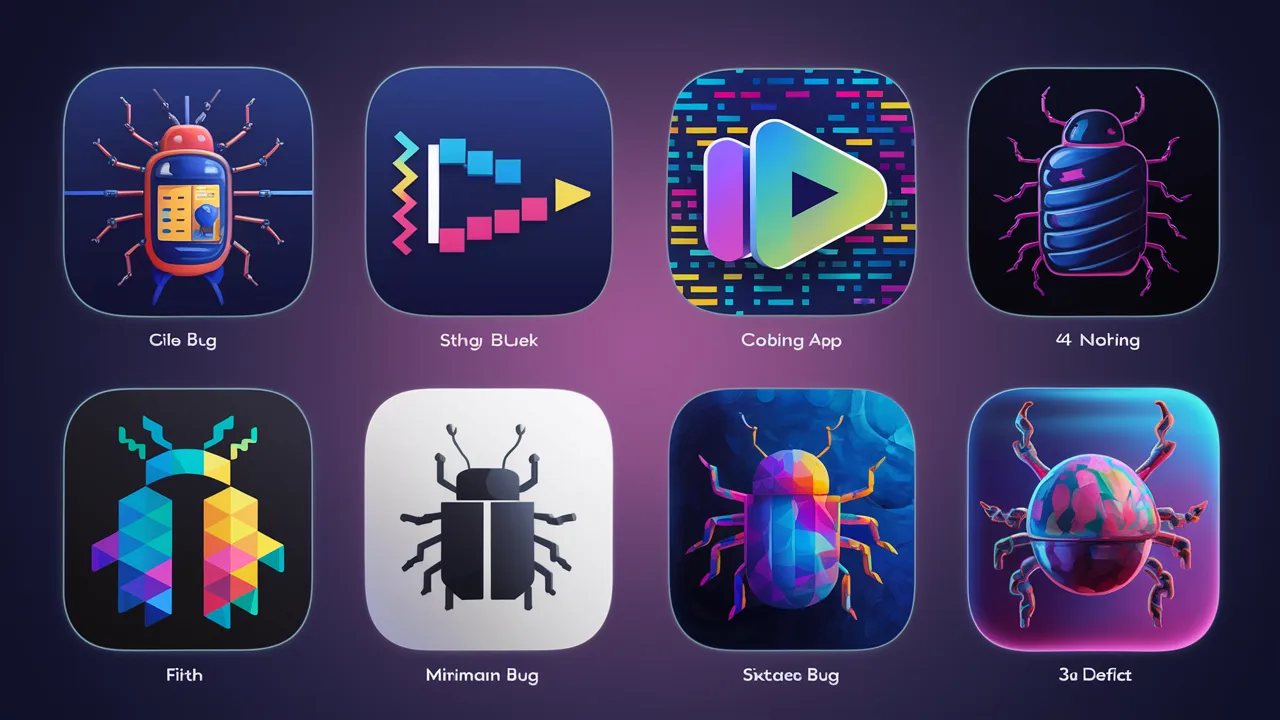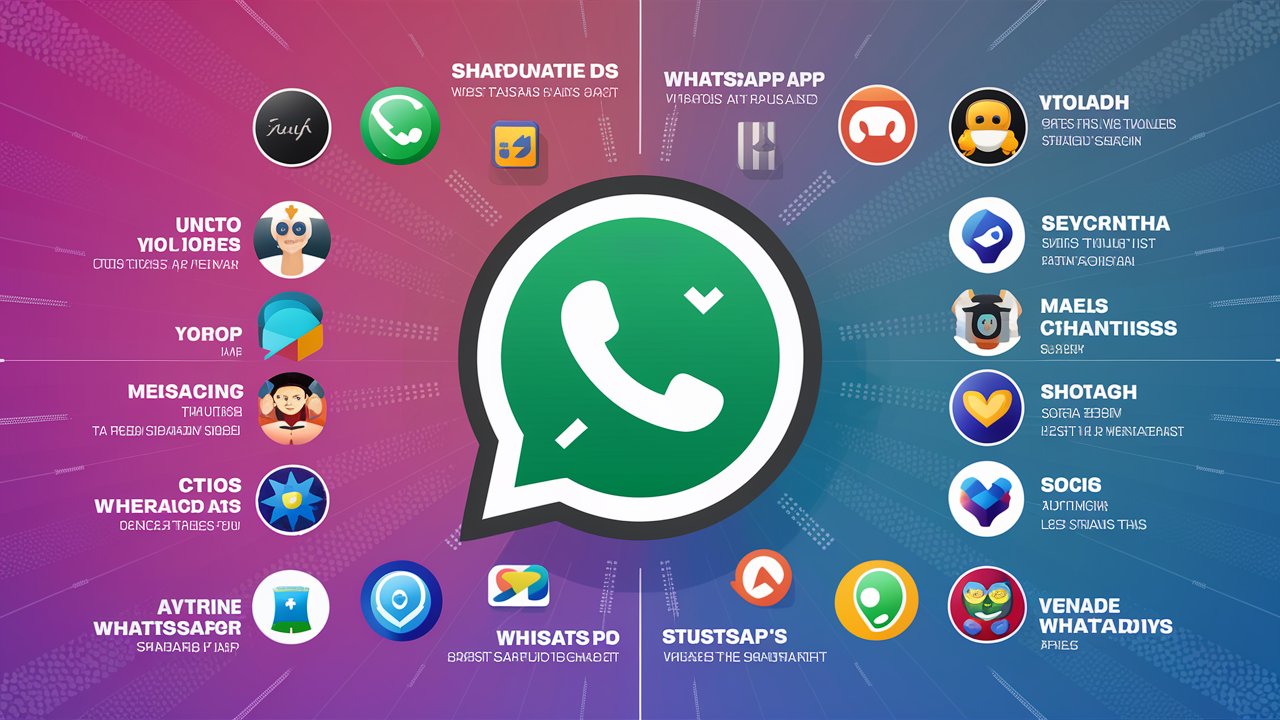| Alternative | Pros | Cons |
|---|---|---|
| Serveo | – No client installation required – Easy setup with one SSH command – Free to use | – Limited features compared to paid services |
| Tailscale | – VPN service with mesh network for increased throughput – Decentralization for stability and reliability – Tailscale Funnel for directing internet traffic | – Not a direct Ngrok alternative – May require learning curve for setup |
| Cloudflare Tunnel | – Connect applications to Cloudflare infrastructure without public IP – Secure connections for various protocols – Enables Zero Trust Network Access | – Requires installation of cloudflared daemon – May have a learning curve for setup |
| Localhost.run | – Simplest tunneling tool without client installation – Instantly makes locally running applications available online – Client-less operation | – Limited features compared to other alternatives |
| Teleconsole | – Free service for sharing system sessions – Generates unique session ID for sharing terminal session – Private proxy feature available | – Security concern as users get full access to shared system – Limited security controls |
| Pagekite | – Supports different types of tunnels (HTTP/HTTPS/TCP/SSH) – Stable domain names available – Exposes localhost servers publicly | – Limitation on launching multiple tunnels simultaneously – May have restrictions on usage |
| Onboardbase | – Collaborative platform for development teams – Sharing app secrets securely – Potential for team collaboration | – Limited information available for detailed pros and cons |
| Zrok | – Open-source and self-hosted alternative to Ngrok – Offers features similar to Ngrok – Potential for customization and control | – Limited information available for detailed pros and cons |
Are you tired of the same old tunneling solutions in the tech realm? It’s time to break free from the ordinary and dive into a world of fresh possibilities. Welcome to a realm where innovation thrives, and alternatives to Ngrok light up your path with empowerment and creativity.
In a landscape where diversity fuels progress, exploring alternative tunneling tools becomes not just a choice but a necessity for tech enthusiasts, developers, and IT professionals alike. Let’s stray away from the conventional and dare to embrace new perspectives that spark curiosity and ignite a sense of resourceful exploration.
By delving into 8 remarkable alternatives to Ngrok, we embark on an exciting journey filled with insights that challenge norms, offering actionable solutions that promise efficiency beyond expectations.As we step into this realm of discovery together, let’s unveil the untapped potential awaiting those bold enough to venture beyond familiar horizons.
Join us in this exhilarating pursuit of innovation as we unravel the magic of these 8 Alternatives to Ngrok that you need to try—where empowerment meets open-mindedness, paving the way for resourceful solutions that elevate your tech experience to new heights.
Alternatives with Localhost Accessibility.
When it comes to accessing localhost without compromising server security, several alternatives stand out as game-changers in the tech realm. These solutions not only offer the convenience of securely tunneling local development environments but also empower developers to explore new possibilities beyond traditional services like Ngrok.
Imagine having the freedom to work on projects locally, knowing that your sensitive data remains shielded from external threats.
Among these alternatives, tools like localhost.run and Serveo have gained popularity for their ability to provide secure connections while simplifying the development process. By comparing different tools’ effectiveness in achieving secure tunnels, developers can make informed decisions based on their specific project requirements.
For instance, a web developer testing an application locally can now do so seamlessly using these alternatives, ensuring a smooth and protected development experience.
Real-world success stories echo the benefits of embracing such local tunneling tools. Developers who have transitioned from conventional approaches to these innovative solutions often report increased productivity and peace of mind knowing their localhost access is both efficient and secure.
These stories serve as testimonials to the empowering impact of exploring diverse perspectives and stepping away from conventional practices towards more resourceful and effective alternatives.
Cloud-Based Alternatives:
Revolutionizing Tunneling with Scalability and FlexibilityWhen seeking alternatives to Ngrok, exploring cloud-based solutions presents a realm of possibilities that align with modern project demands. These platforms offer tunneling functionalities akin to Ngrok while introducing scalability and flexibility that cater to diverse project requirements.
Imagine seamlessly testing your applications across multiple environments without the constraints of traditional setups – this is the power cloud-based alternatives bring to the table.
One such example is Xpose. With its intuitive user interface and robust feature set, Xpose allows developers to create secure tunnels for local hosting accessibility effortlessly. The ability to scale resources dynamically based on project needs makes it an ideal choice for teams working on agile development processes or handling fluctuating traffic loads.
By utilizing such cloud-based solutions, testing processes can be streamlined, workflow bottlenecks reduced, and development efficiency amplified, paving the way for innovation without compromising security.
Whether you’re a startup looking to minimize infrastructure costs or an enterprise seeking reliable tunneling options for large-scale projects, cloud-based alternatives like ProxyLocal offer the perfect blend of performance and adaptability.
Embracing these innovative tools not only empowers developers to explore new avenues but also opens up possibilities for collaboration and experimentation in a technology landscape ever-evolving towards enhanced productivity and seamless integration.
Open Source Tunneling Tools.
When seeking alternatives to traditional tunneling services like Ngrok, turning to free and open-source options can bring a whole new level of flexibility and customization. Imagine having the power to tune your tunneling tool to perfectly fit your project’s unique requirements – that’s the promise of these open-source solutions waiting to be explored.
From tools offering intuitive user interfaces to those backed by vibrant developer communities, the world of open-source tunneling tools is brimming with possibilities.
Delving into these alternatives, you’ll find an array of features tailored to cater to various needs. Whether it’s robust security protocols, seamless integration with existing workflows, or simple deployment processes, each tool has its own strengths waiting to be discovered.
By providing a breakdown of features, ease of use insights, and showcasing community-driven support channels for these tools, developers can tap into a wealth of resources at their fingertips.
User testimonials serve as insightful guides into the transition from conventional services like Ngrok to open-source tunneling tools. Through firsthand experiences shared by fellow developers who have embraced these alternatives, readers gain a glimpse into the practical benefits and newfound freedom that come with exploring different solutions.
These stories paint a vivid picture of how empowerment through choice can lead to enhanced productivity and innovation in development environments.
VPN Solutions for Secure Tunnels.
In the realm of secure tunnelling, VPN services emerge as robust alternatives to Ngrok, offering encrypted pathways for remote access. Not only do they ensure data integrity and confidentiality, but they also provide a shield against potential cyber threats.
\When delving into the world of VPNs, users can encounter a diverse range of encryption standards, each contributing to varying levels of security. Exploring options like OpenVPN, WireGuard, or IPsec allows developers to tailor their tunneling solutions based on specific project needs while elevating security measures.
Comparing VPN offerings goes beyond encryption protocols; it includes evaluating connection stability and overall performance across different service providers. By examining factors such as server locations, speed capabilities, and bandwidth allocation, developers can pinpoint VPN solutions that align seamlessly with their workflow requirements.
Transitioning from conventional tunnelling methods like Ngrok to VPN services opens up possibilities for enhanced privacy safeguards and network reliability in development practices.
Integrating VPNs harmoniously into development workflows is vital for a seamless experience. Empowering users to embrace these alternatives involves guidance on setting up VPN connections across various devices and ensuring compatibility with software applications commonly used in coding environments.
With a resourceful approach to implementation strategies, developers can navigate the transition confidently and optimize their tunneling experiences for improved security posture and operational efficiency. Embracing the realm of VPN solutions signifies a step towards fortified digital fortresses where data travels securely through encrypted tunnels designed to safeguard sensitive information in transit.
Self-Hosted Tunnel Solutions:
Taking Control of Your Network ConnectionsFor tech enthusiasts and developers seeking full autonomy over their network connections, self-hosted tunnel solutions stand out as a compelling alternative to traditional services like Ngrok.
By opting for self-hosted options, individuals can customize their setups according to specific project requirements, enhancing both security and performance. Imagine having the ability to fine-tune every aspect of your tunneling process – from encryption protocols to access control mechanisms – empowering you to shape your networking environment exactly as needed.
When delving into the realm of self-hosted tunnel solutions, users encounter a world of configuration possibilities that may seem daunting at first but ultimately provide unparalleled flexibility. By illustrating scenarios where these alternatives outshine conventional services, such as Ngrok, through real-world examples or user testimonials, readers can grasp how this shift can elevate their projects.
For instance, a developer sharing their experience of seamlessly integrating a self-hosted solution into their workflow and witnessing significant improvements in speed and security could inspire others to explore this route confidently.
Furthermore, by detailing step-by-step setup procedures and highlighting key features that distinguish various self-hosted tunneling tools, readers gain valuable insights on navigating this transition smoothly.
Consider a scenario where deploying a self-hosted tunnel not only enhances data privacy but also optimizes bandwidth utilization for a large-scale project – showcasing the tangible benefits of embracing these alternatives.
This resourceful approach provides readers with actionable knowledge on how they can implement self-hosted tunnels effectively in their development environments, fostering an open-minded approach towards exploring unconventional yet potent solutions for network connectivity challenges.
Mobile App Testing Alternatives.
When it comes to testing mobile applications, the need for a reliable and efficient tool can make all the difference in ensuring a seamless user experience. Diving into alternatives that steer clear of external dependencies opens up a world of convenience and flexibility for Quality Assurance (QA) teams.
Imagine exploring tools designed specifically to streamline mobile app testing, offering features like session recording, robust debugging capabilities, and cross-platform compatibility. These alternatives not only simplify testing processes but also empower teams to deliver high-quality apps without cumbersome setup requirements.
One standout feature of these tools is their cost-effectiveness paired with unmatched convenience. By opting for these alternative solutions over traditional methods like Ngrok, QA professionals can save valuable time and resources while enhancing the overall testing efficiency.
With an open-minded approach to embracing diverse perspectives in the realm of mobile app testing, users can discover new possibilities that cater perfectly to their project needs. This shift towards innovative tools paves the way for breaking free from conventional approaches and redefining how mobile app testing is conducted with a playful yet practical mindset.
By delving into these mobile app testing alternatives, developers and tech enthusiasts can leverage insightful insights on how these tools bring added value to their projects.
Whether it’s diving into session recording functionalities or exploring cross-platform compatibility benefits firsthand, users are encouraged to think beyond the norm and embrace solutions that offer both empowerment and resourcefulness.
Through this exploration of alternatives, individuals embark on a journey filled with discovery and growth in their approach to quality assurance practices for mobile applications – making every testing process an enjoyable endeavor ripe with innovation and possibility.
Networking Protocols Beyond Ngrok.
When it comes to exploring alternatives beyond traditional tunneling services like Ngrok, delving into advanced networking protocols can open up a whole new world of secure communication channels.
These protocols offer enhanced functionalities and features that go beyond basic tunneling, providing professionals with more robust solutions for their networking needs. By adopting newer networking protocols, users can elevate their connectivity to a higher standard while ensuring data security and integrity.
One significant benefit of embracing these advanced networking protocols is the level of encryption and security they offer compared to conventional tunneling services. The robust encryption standards employed by these protocols create a safer environment for data transmission, giving users peace of mind regarding the confidentiality of their information.
Additionally, exploring these cutting-edge protocols opens doors to improved performance metrics and optimized network efficiency, enhancing overall productivity in development projects.
Transitioning to these alternative networking protocols may present some challenges or drawbacks initially due to potential compatibility issues or learning curves associated with implementing new technologies.
However, many professionals who have made the switch attest to the substantial advantages gained in terms of speed, reliability, and scalability. By sharing success stories and case studies from individuals who successfully transitioned to these advanced protocols, readers can gain valuable insights into the transformative impact such a change can have on their networking capabilities.
Unlocking the potential of advanced networking protocols beyond Ngrok not only empowers users with innovative solutions but also encourages them to step outside the confines of conventional practices.
Embracing diverse perspectives and considering new possibilities in networking infrastructure can lead to groundbreaking discoveries and improvements in workflow efficiency. By sharing real-life examples of professionals who embraced change and reaped significant benefits from transitioning to these cutting-edge protocols, readers are inspired to explore new horizons in their own networking endeavors.
Implement Best Practices:
Bringing It All TogetherAs you embark on the journey of exploring alternatives to Ngrok, it’s essential to integrate best practices into your decision-making process.
Consider key factors like security measures, scalability, and optimal performance when selecting among the diverse tunneling solutions presented earlier in this article. By emphasizing these essential elements, you empower yourself to make informed choices that align with your project’s specific needs.
Remember that this exploration of alternatives not only breaks you free from conventional methods but also opens up a world of possibilities for innovation and efficiency. Embrace this opportunity with an open mind, allowing diverse perspectives to guide you towards new and exciting solutions.
By implementing the actionable insights shared here, you can confidently incorporate alternative tunneling tools into your workflow, transforming challenges into opportunities for growth and success. Keep experimenting, stay resourceful, and enjoy the journey of discovering what works best for you in the ever-evolving landscape of technology.
I am commitment to crafting compelling narratives and delivering insightful content continues to inspire and inform readers across various platforms. Explore her articles on AlternativesZone.com and FactAfterFact.com to experience a rich tapestry of knowledge and discovery. Here I Analyze and Test the products and services together with my team before we recommend them to our users. Nice Reading Here!








No responses yet